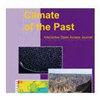Strong volcanic-induced climatic shocks on historical Moselle wine production
IF 3.2
2区 地球科学
Q1 GEOSCIENCES, MULTIDISCIPLINARY
引用次数: 0
Abstract
Abstract. In central and southern Europe, grapevine is a climate-sensitive agricultural product of large economic importance, both in historical times and today. We systematically investigated the climatic impact, focusing on volcanic-forced abrupt cooling, on two long annual records of wine production quantity (spanning 1444–1786) from the Moselle Valley in present-day Luxembourg, close to the northern limit of viticulture in Europe. We present a consistent picture of the impact of volcanic eruptions on wine production through climate. To this end, we applied superposed epoch analysis – an appropriate method for detecting episodic signals in non-stationary time-series – in combination with a bootstrap procedure to estimate the statistical significance. We also assessed the long-term relationship between different annual and seasonal climate parameters and wine production in the Moselle Valley. Robust and highly significant wine production declines occurred in the years immediately following major volcanic events. Warmer, and to a lesser extent drier, climate condition had a moderately strong, but persistent, positive effect on wine production. We also find a volcanic cooling signature in spring and summer in temperature reconstructions. However, the detected volcanic signature in the Moselle Valley wine production is considerably stronger than the one found for Central Europe in tree-ring data and is instead more akin to the strong volcanic signature present in Fennoscandian tree-ring series. On the basis of our findings, we encourage further compilation, publication, and analyses of additional wine production series containing unique biological and climatic information.火山引发的强烈气候冲击对摩泽尔历史上葡萄酒生产的影响
摘要在中欧和南欧,葡萄是一种对气候敏感的农产品,在历史上和今天都具有重要的经济意义。我们系统地研究了气候的影响,重点是火山爆发导致的突然降温,以及两份来自当今卢森堡摩泽尔山谷的葡萄酒产量长年记录(时间跨度为 1444-1786 年),该山谷靠近欧洲葡萄栽培的北部极限。我们展示了火山爆发通过气候对葡萄酒产量影响的一致画面。为此,我们采用了叠加历时分析法--这是一种在非平稳时间序列中检测偶发信号的适当方法--并结合引导程序来估计统计意义。我们还评估了摩泽尔河谷不同年度和季节气候参数与葡萄酒产量之间的长期关系。在重大火山事件发生后的几年里,葡萄酒产量出现了非常明显的下降。较暖的气候条件以及较小程度上较干的气候条件对葡萄酒产量有中等程度但持续的积极影响。我们还在温度重建中发现了春季和夏季的火山降温特征。然而,在摩泽尔河谷葡萄酒生产中发现的火山特征要比树龄数据中发现的中欧火山特征强得多,而更类似于芬诺斯坎迪亚树龄序列中的强火山特征。根据我们的研究结果,我们鼓励进一步编纂、出版和分析更多包含独特生物和气候信息的葡萄酒生产系列。
本文章由计算机程序翻译,如有差异,请以英文原文为准。
求助全文
约1分钟内获得全文
求助全文
来源期刊

Climate of The Past
地学-气象与大气科学
CiteScore
7.40
自引率
14.00%
发文量
120
审稿时长
4-8 weeks
期刊介绍:
Climate of the Past (CP) is a not-for-profit international scientific journal dedicated to the publication and discussion of research articles, short communications, and review papers on the climate history of the Earth. CP covers all temporal scales of climate change and variability, from geological time through to multidecadal studies of the last century. Studies focusing mainly on present and future climate are not within scope.
The main subject areas are the following:
reconstructions of past climate based on instrumental and historical data as well as proxy data from marine and terrestrial (including ice) archives;
development and validation of new proxies, improvements of the precision and accuracy of proxy data;
theoretical and empirical studies of processes in and feedback mechanisms between all climate system components in relation to past climate change on all space scales and timescales;
simulation of past climate and model-based interpretation of palaeoclimate data for a better understanding of present and future climate variability and climate change.
 求助内容:
求助内容: 应助结果提醒方式:
应助结果提醒方式:


